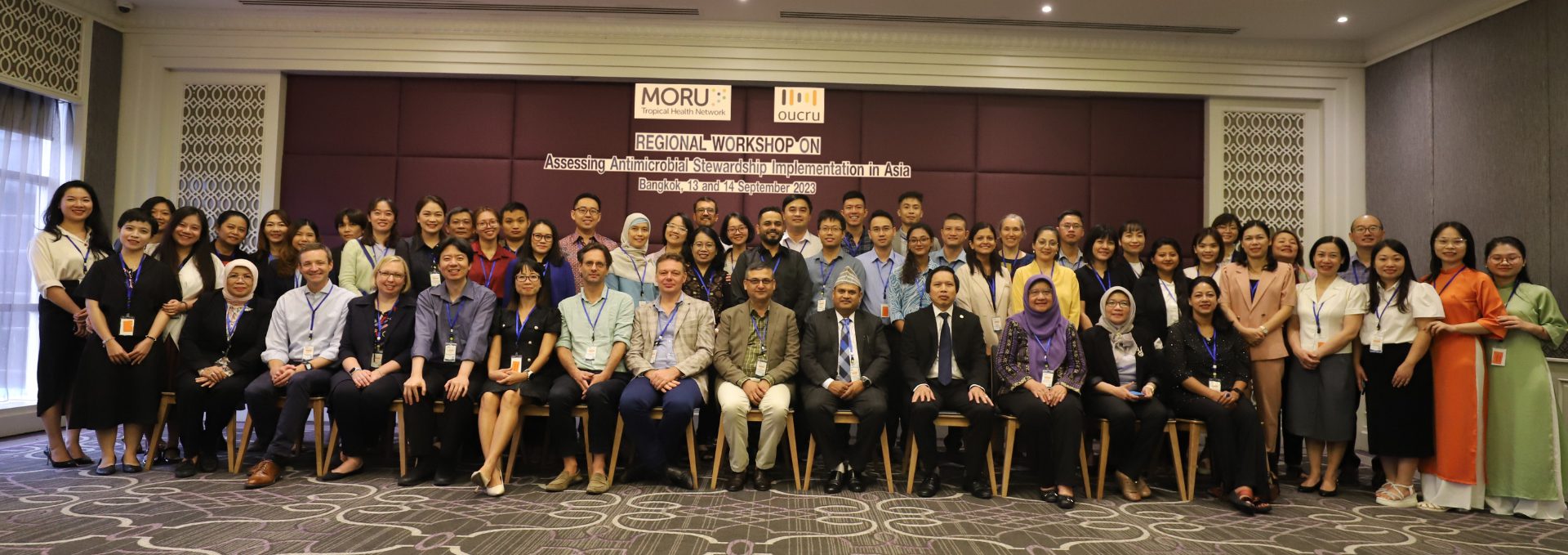Principal Investigator
Dr Vu Thi Lan Huong
Locations
Indonesia, Nepal, Thailand, Vietnam and USA
Funder
US CDC
Antimicrobial stewardship (AMS) is an important strategy to control antimicrobial resistance (AMR). Resources are available to provide guidance for the design and implementation of AMS programmes. However, these may have limited applicability in resource-limited settings, including those in Asia.
Context-specific matters for Health Care Facility (HCF)-level AMS implementation are not yet captured in the current HCF tools of the World Health Organization (WHO). Understanding implementation needs and practices within the Asian context and being able to monitor progress over time is key to assisting local healthcare facilities with improving antimicrobial use.
A context-specific assessment tool that is practical and responsive to the local conditions is needed to support institutions to start and maintain AMS programmes in Asia. This assessment tool will be complementary to the WHO tools on the national and HCF levels to provide support for hospitals in assessing their AMS status and improving the programme implementation.
Developed, tested and validated two assessment tools at Wilson Medical Center (USA) and Friendship Hospital (Vietnam):
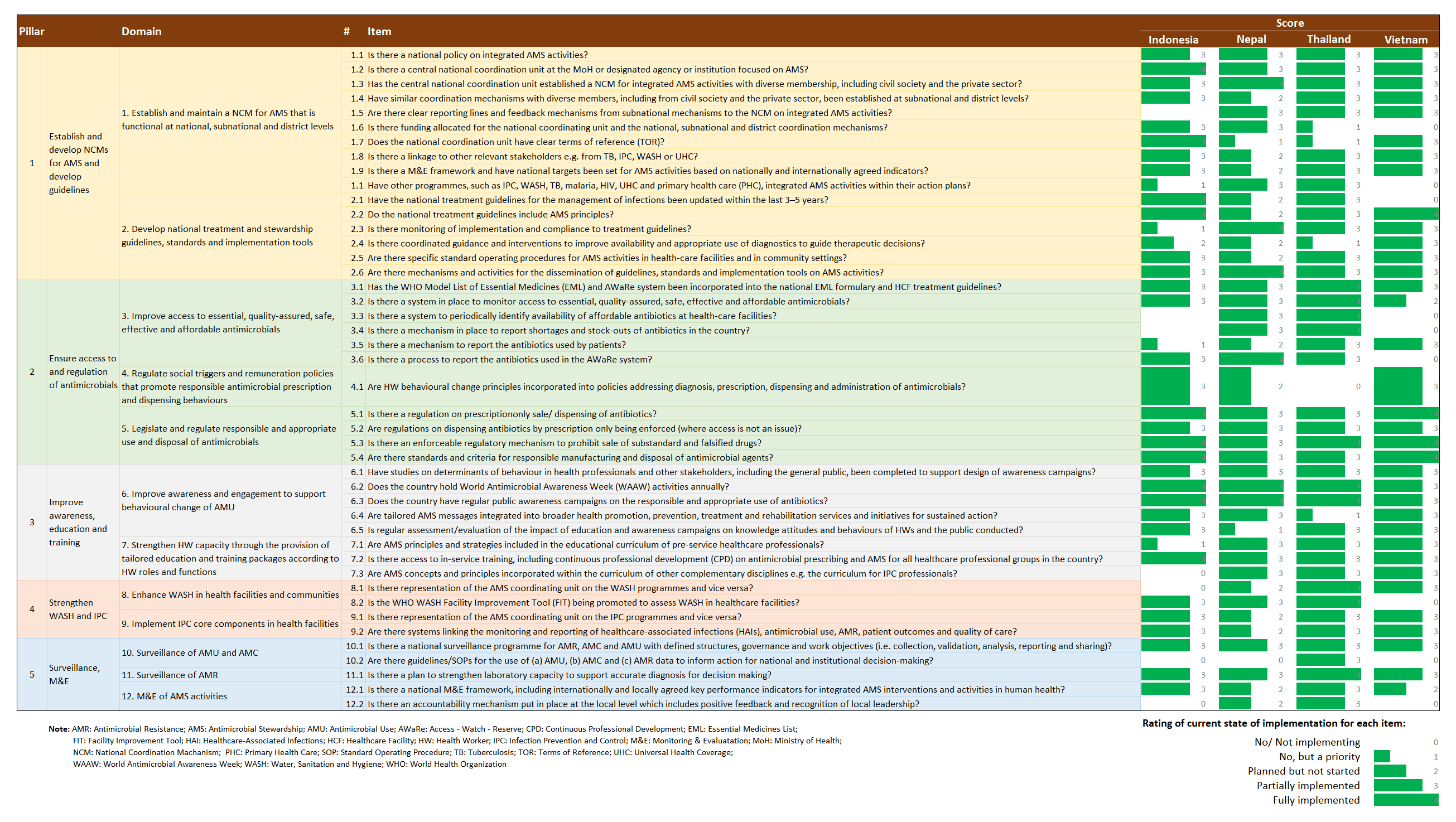
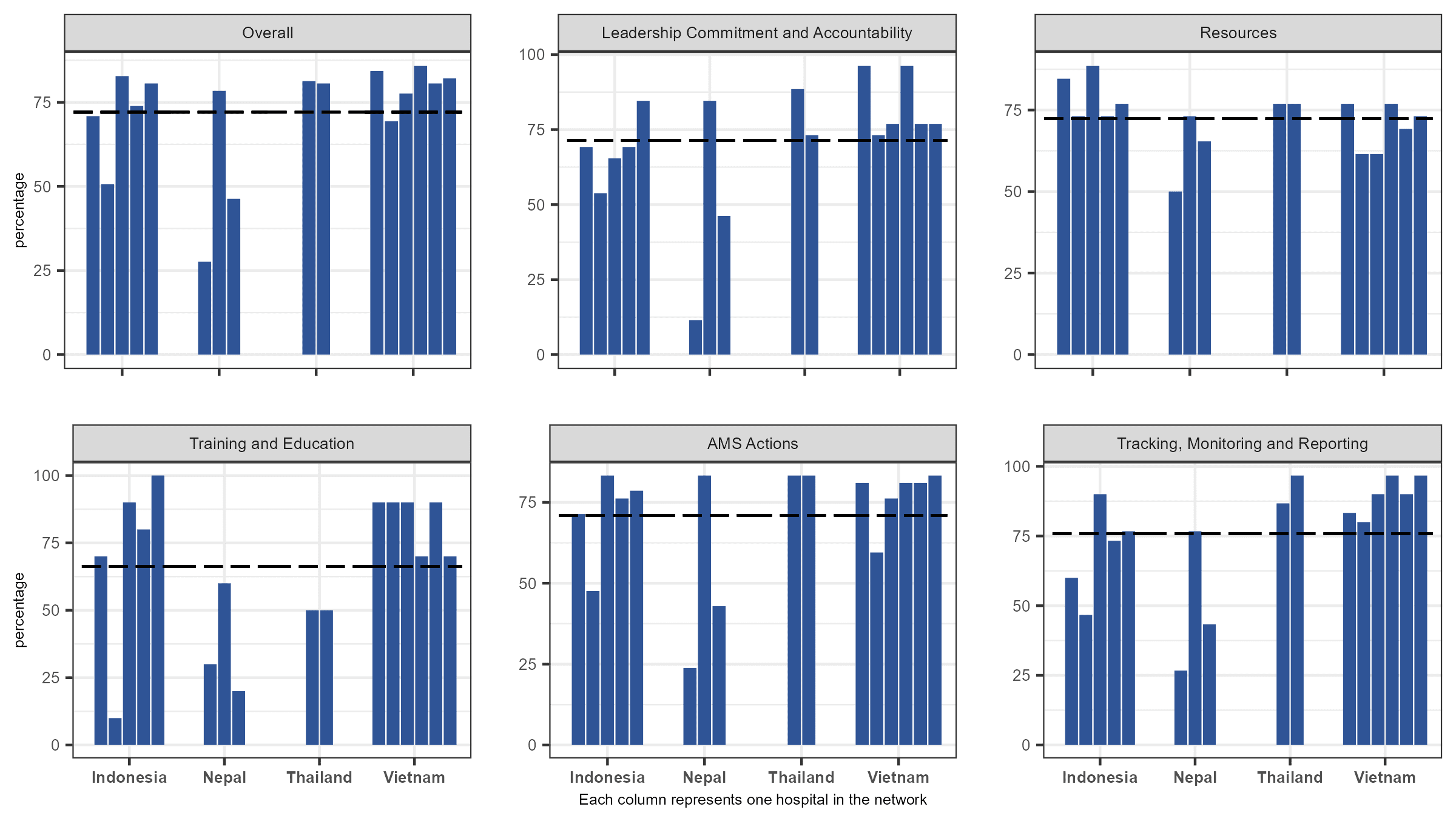
Additionally, the KAP survey tool was used to collect information on knowledge, attitudes, and perceptions of AMS programs and the practice of antibiotic prescribing from health workers. Two hundred ninety-one doctors, pharmacists, microbiologists, and nurses completed and submitted their ratings in the KAP survey from 16 hospitals in the four countries.
On October 26, 2022, the research team hosted a virtual kick-off meeting with 102 attendees from a number of meeting rooms, joining each hospital partner and relevant stakeholders to launch the implementation phase of the project.
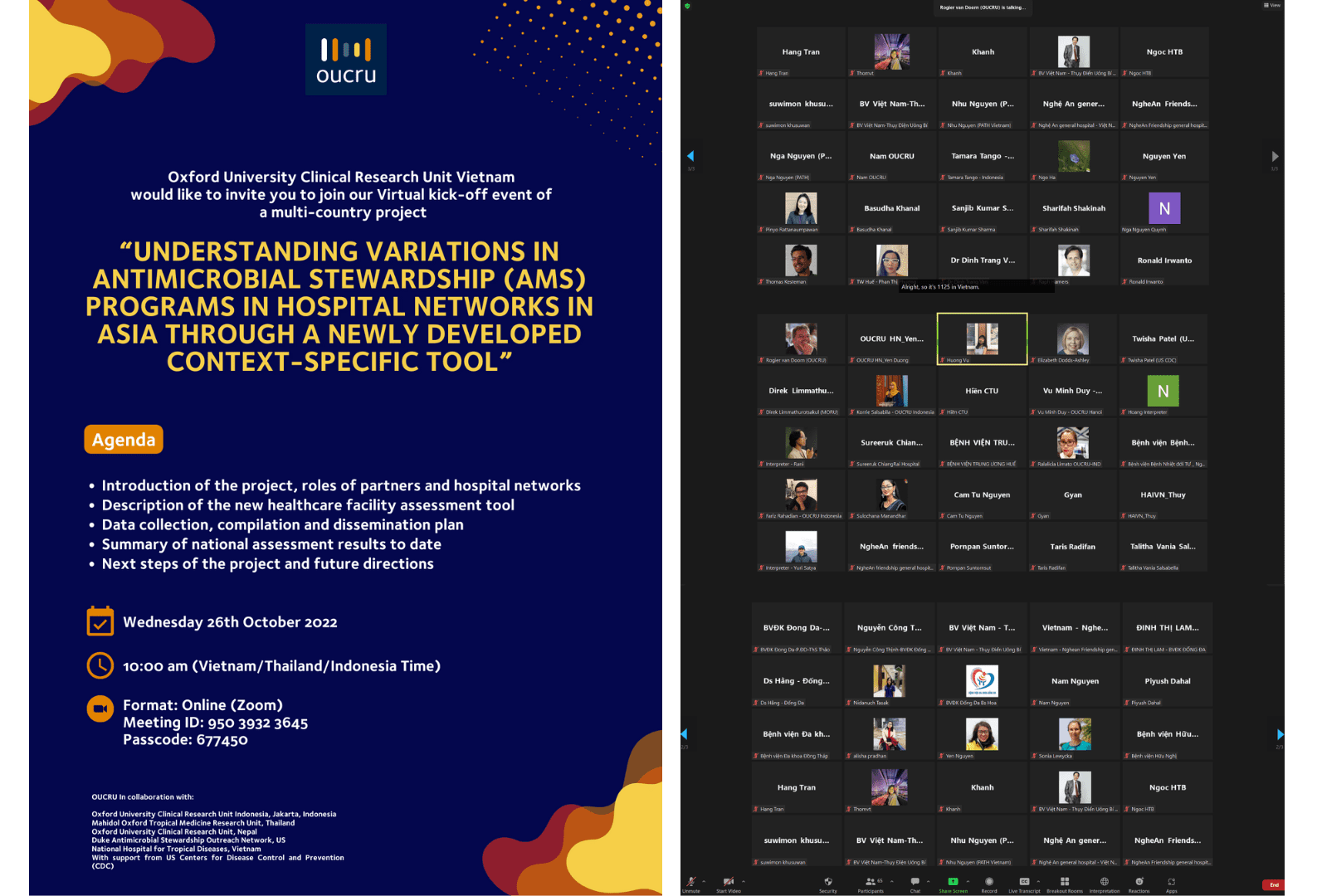
A national workshop on AMS implementation in Vietnam was organized on August 30, 2023, with the participation of representatives from different key stakeholders to discuss and receive feedback on the WHO’s tool at the national level and national assessment results.
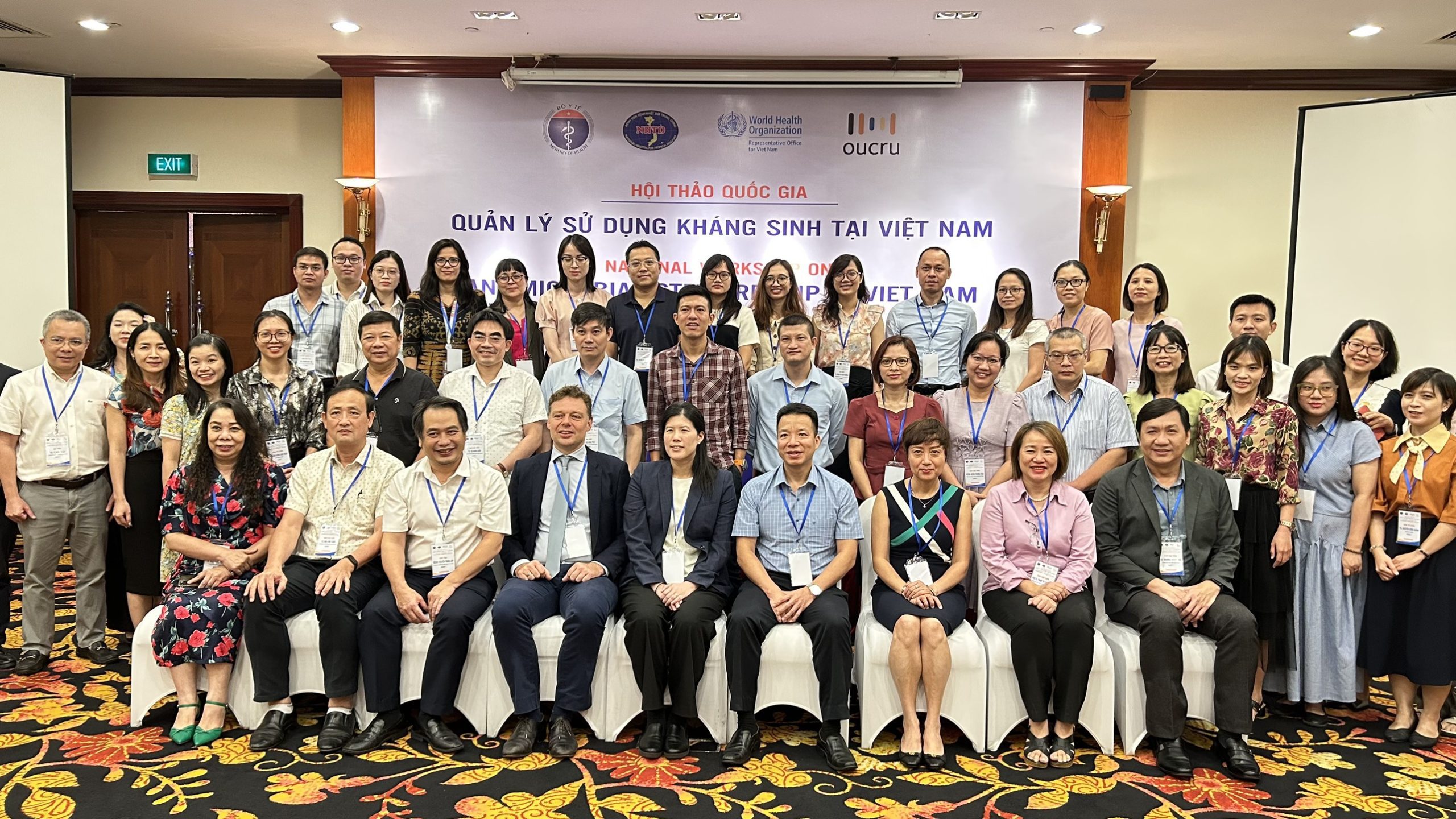
At the regional workshop in Bangkok, Thailand, on September 13–14, 2023, all investigators’ team members and representatives from local partners from four countries shared the findings of the assessment and discussed the next steps to improve the assessment tools, their applicability, and approaches for improving antibiotic prescribing practices in healthcare facilities in Asia.
